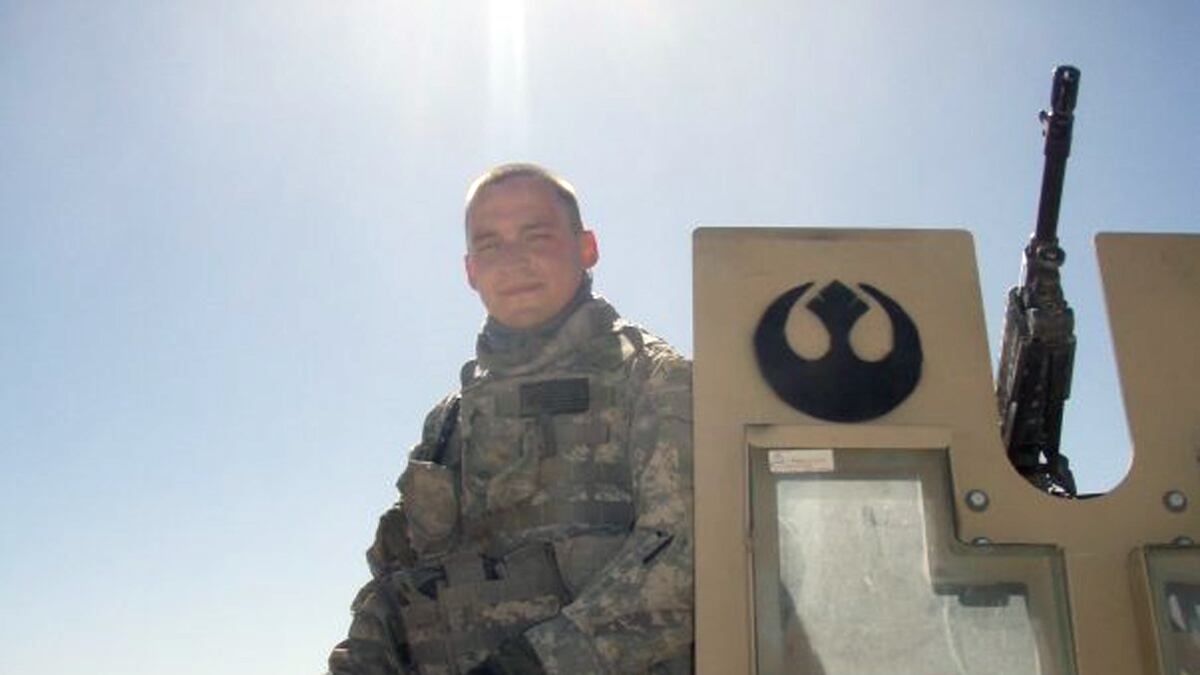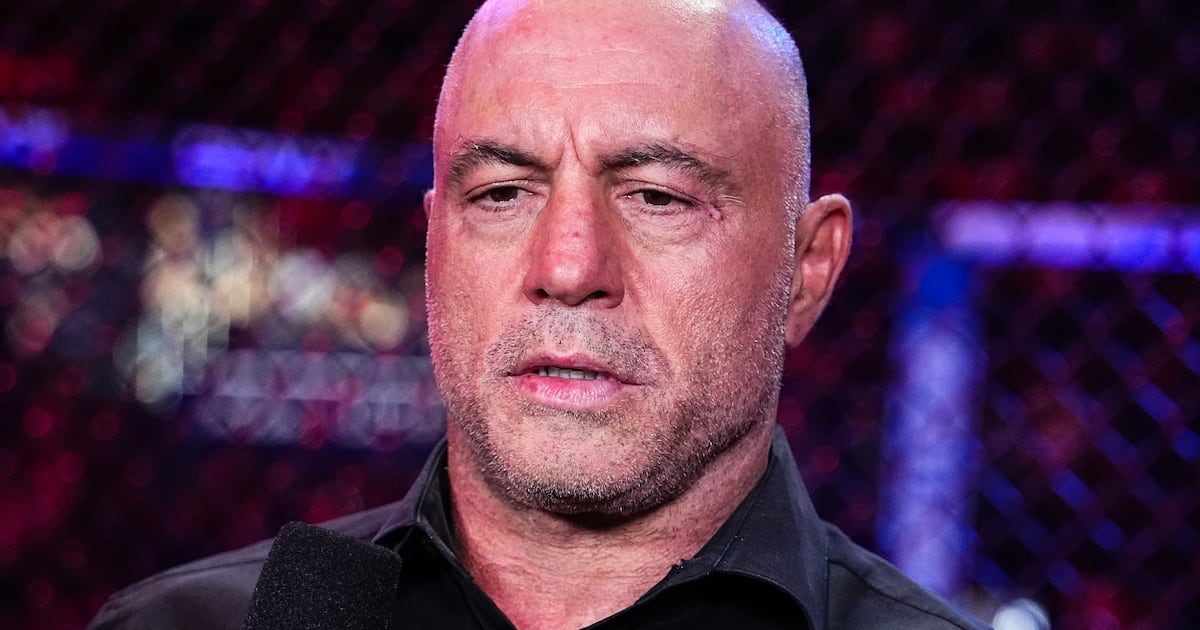I was at a wedding, having a beer with an Army officer who had served multiple combat tours overseas, when I told him I would be deploying to Kuwait.

“That's great, man,” he said. “Just go over there and hit the gym, get a tan, and earn a paycheck.” I wanted to tell him that’s not why I volunteered for a second tour, but he’d already walked off.
I’d served one tour in Afghanistan in 2007 before leaving the service in 2010. A year later, when my company was slotted to return there, I reenlisted. I wanted to help the new guys through a difficult and trying experience, to do the right thing, to go back to the winding-down war to bring the rest of the guys back home. A few months after I rejoined, we were told we’d be going to Kuwait instead. The small nation whose invasion by Iraq in 1991 triggered the first Gulf War has been a key regional staging point and hub for American forces moving to and from Afghanistan and Iraq. As our troops withdraw from those battlefields, the U.S. and Kuwaiti governments are reportedly negotiating terms for maintaining an American military presence there capable of response if new conflicts arise, perhaps with Iran. Still, for the moment, it’s a way station, a back office for wars elsewhere.
To prepare for Kuwait, I mobilized with my Army National Guard unit. As infantry soldiers, we spent countless days on live-fire ranges. One range, fallen into disrepair after years of hard use by mobilizing units, had many targets that did not register hits, would go down by themselves, or would not come up at all. Every military unit in every war has managed with inadequate equipment; when the end of the war approaches, that deficiency becomes much more pronounced.
When my unit ran that range, I volunteered for firefighter duty. Whenever a tracer round zinged off into the distance and caught fire in the dry grass or brush, I would hop into a Humvee with one or two others and ride downrange to the scene. We would hop out of the vehicle with large plastic flappers, sounding off against the trees and swamp with our best war cries, and charge the growing flames like they were Taliban positions.
It will probably be the most action we see all deployment.
Often the training is geared toward Afghanistan, where fresh troops are still being sent even as the surge dies down and civilian and military officials plan for and negotiate the war’s end. We continually have to remind our trainers that is not our final destination.
When I did deploy to Afghanistan in 2007, our trainers often thought we were going to Iraq. Back then, it seemed like the wars were indefinite and even the training cadre could expect to deploy again. But now, many of the NCOs providing our training speak of the wars in the past tense. Many describe their experiences over multiple deployments. I'm thankful to have trainers who have so much experience, but they often sound tired.
From the new soldiers, we veterans hear a continual refrain: “At least you got to go.” Many of them are happy to deploy, even if it is not to combat—but some of them have taken the news of our quiet mission harder than others. Many who joined counted on a deployment for life experience, for their careers, or for financial reasons.
During our mobilization training, representatives from the Pentagon came to speak with members of our brigade. They asked about our experiences with employers and with the services available to veterans and Reserve-component soldiers.
“Sir, I can name several soldiers across the rank spectrum, from specialist to sergeant major, who have lost work and been unable to find recourse through the established channels,” I said. “The system hasn't worked.”
“Oh, but it has worked, it has been very successful,” he replied, without elaborating.
We might not have to deal with IEDs and firefights this deployment, but with veteran unemployment in double digits—at 17 percent, according to an Iraq and Afghanistan Veterans of America member survey released in March—getting a job will undoubtedly remain a primary concern among returning veterans of all services.
Our company leadership has openly stated that we NCOs are to help the lower enlisted soldiers develop their résumés, take college courses online, and work on their interview skills over the course of the deployment. Many of the NCOs and officers would probably benefit from this, too. It is a surreal intent—welcome, but not what I was signing up for.
On our way home for leave, a group of us gathered together at an airport restaurant. We griped and laughed and swore and made fun of one another and ourselves. Another soldier, wearing the distinctive, darker uniform unique to those serving in Afghanistan, made his way up to the bar. A lieutenant with too-soon gray hair, he wore a familiar, tired look on his face and a Ranger Regiment combat scroll. He slumped down at the bar and quietly ordered a drink, his shoulders low, his eyes fixed on a television screen. Someone may have wanted to buy him a beer, but no one approached him. We piped down and stared at our feet. When a civilian offered to buy us drinks, he asked where we were going. There was silence and a few glances to the Ranger drinking alone.
“Kuwait,” someone finally said, quietly. We wanted to say “Afghanistan,” but we couldn't. We are denied that privilege. We are free of that burden.
“That's what they're telling us this week,” I added, trying to make a joke of it. No one laughed.
When I got home, I played up in my stories the more absurd or amusing parts of my experience—the broken ranges, the mandates to wear bright yellow reflective belts across our uniforms, or the week and a half a bunch of us spent in isolation recovering from walking pneumonia and mono, passing the time watching shows about kittens on Animal Planet.
I enjoyed my time with my girlfriend, drinking beers with friends, dining out with my parents. I know that while I will miss them and that a deployment—no matter where—presents hardship, I will not be returning to the trials of war. For this I am thankful.
But seeing on television, in photographs, and in person the gaunt, weary faces of those coming home or serving in a war in its slow burn to an uncertain but inevitable resolution, I cannot help but feel an obligation still unfulfilled and a guilt that lingers.






